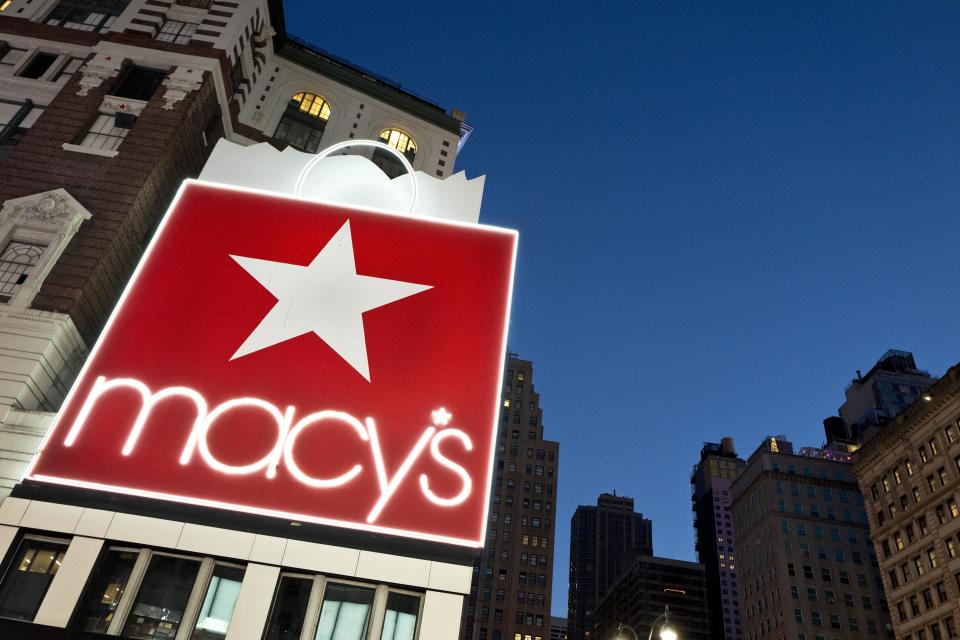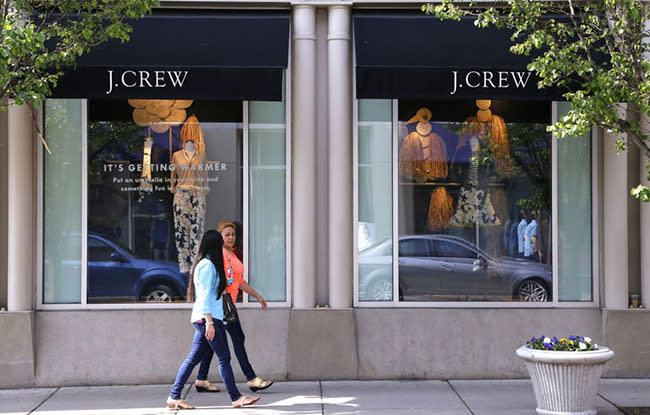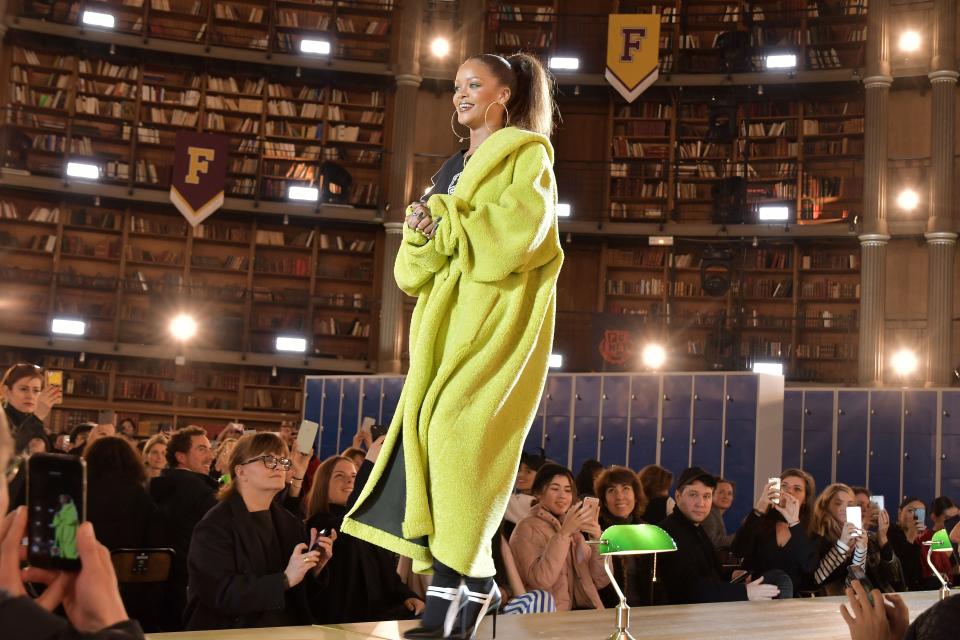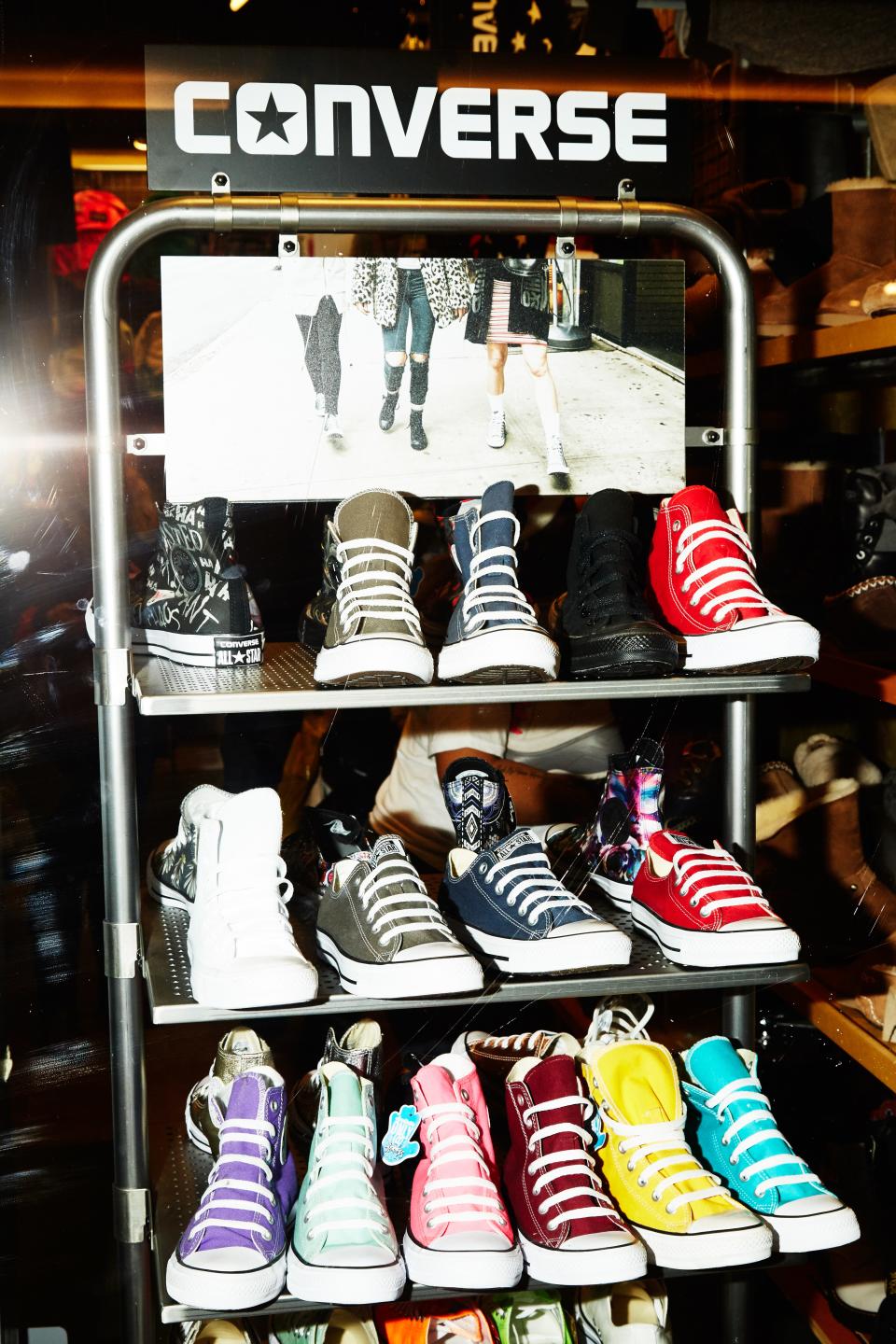The 5 Biggest Lawsuits in Fashion

Any business will come up against legal issues and fashion companies, despite a sheen of glamour, are no exception.
The industry overall is valued at well over $1 trillion dollars and the financial futures of brands such as J. Crew, Puma, Converse and even Coachella can hinge on something as ephemeral as a stripe, a shoe sole or the “goodwill” of a name.
Although retail and fashion industries are facing fundamental changes — including massive store closures and shifting shopping habits — that hasn’t stopped companies from launching cases that could have broad effects on everything from trademarks to financing packages.
Here, some of 2017’s biggest legal tussles in fashion and retail.
Case: Cox vs. Macy’s

Core Issue: Employee non-compete agreement
Summary: Kristen Cox, until recently a regional executive vice president of stores for Macy’s based in Chicago, is suing the retail giant over a non-compete agreement she signed in 2012 as part of her severance agreement. The deal prohibits Cox, who has accepted a position with Burlington Stores, from going to work for “any major retailer” for two years after leaving Macy’s. While Cox characterized the agreement as “unreasonable and unlawful” and noted that Macy’s makes use of the contract with a wide range of employees, the retailer said her noncompete is “very specific” and that it intends to enforce it.
What It Could Mean: Noncompetes are generally disliked by judges, who tend to view them as tactical and anticompetitive, especially when used with lower-level workers not privy to trade secrets. Should a judge rule in favor of Cox, retailers and other companies will have a tough time enforcing noncompetes against nonexecutives with broad language.
Case: J. Crew vs. Wilmington Savings Fund

Core Issue: J. Crew wants the court’s blessing for a new subsidiary that put a majority of its namesake brand out of the reach of lenders.
Summary: J. Crew asked a court to declare a restructuring that moving $250 million worth of IP into a new subsidiary is not in violation of lender agreements, but a group of investors with a stake in the company’s $1.5 billion term loan and represented by Wilmington aren’t happy. They have characterized J. Crew as an “insolvent clothing retailer” working to keep the value of one of their few assets for its owners and indirect corporate parent.
What It Could Mean: Fights between companies and lenders are nothing new, but it appears J. Crew employed the commonly used unrestricted subsidiary in a new way. Should a judge rule in favor of J. Crew, it could have other cash-strapped retailers looking closely at terms of their financing.
Case: Puma vs. Forever 21

Core Issue: Forever 21 is allegedly selling copies of several shoes in Rihanna’s Fenty collection for Puma.
Summary: Forever 21 is selling a suede creeper sneaker, a slide sandal with fur and a slide sandal with a knotted satin bow that Puma claims are all near-exact copies of trademarked designs by Rihanna for her Fenty line with the athleticwear company. Puma has called the retailer a “serial infringer” of trademarked designs, and is pushing hard to stop Forever 21’s sale of the shoes until the litigation is resolved.
What It Could Mean: Should a judge find Forever 21 willfully infringed on Puma’s intellectual property, it could at least dampen the fast-fashion retailer’s proclivity for copycat designs and send a signal to others that Puma is actively defending the work of its buzziest designer.
Case: Coachella Music Festival vs. Urban Outfitters

Core Issue: Urban Outfitters is selling several “Coachella”-themed garments through Free People, without the consent of the annual music festival.
Summary: Coachella and Urban Outfitters may appeal to a similar consumer base, but the music festival sees an association with the retailer as little more than brand dilution and wants Urban affiliate Free People to stop selling garments incorporating “Coachella” in product titles and online marketing. Coachella has its own range of branded goods and services, including apparel, but claims Urban is “trading on the goodwill and fame” of the event, as well as related trademarks, without permission.
What It Could Mean: This isn’t the first time Urban has been accused of capitalizing on the intellectual property of others, but if a judge sides with Coachella, other brands will think twice before using popular events for marketing without a proper deal.
Case: Converse vs. International Trade Commission

Core Issue: The ITC refused to give Converse broader trade dress protection for its popular Chuck Taylor sneakers, and the company is looking for a reversal.
Summary: In an attempt to halt the import of shoes with design elements similar to a Chuck Taylor, like the PF Flyers made by New Balance, Converse filed an action with the ITC, in addition to a slew of federal lawsuits against brands allegedly infringing on the company’s trademark. The ITC action backfired when the commission refused to extend trademark rights to a Chuck Taylor’s toe cap, bumper and midsole design because Converse could not show secondary meaning behind these elements.
What It Could Mean: Sneakers featuring a toe cap, toe bumper and midsole stripe design accents akin to those seen on a Chuck Taylor — beware. If the federal circuit reverses the ITC’s underlying ruling, Converse could get trade dress protection for its shoe design, leaving it to be used exclusively by the brand.
Related stories
Kering Powers Ahead in Q1 as Gucci Defies Predictions
E-commerce Seen as Stabilizing Retail
Brown: The World Isn't Ending, but Retail and Shopping Centers Are Suffering
Get more from WWD: Follow us on Twitter, Facebook, Newsletter

